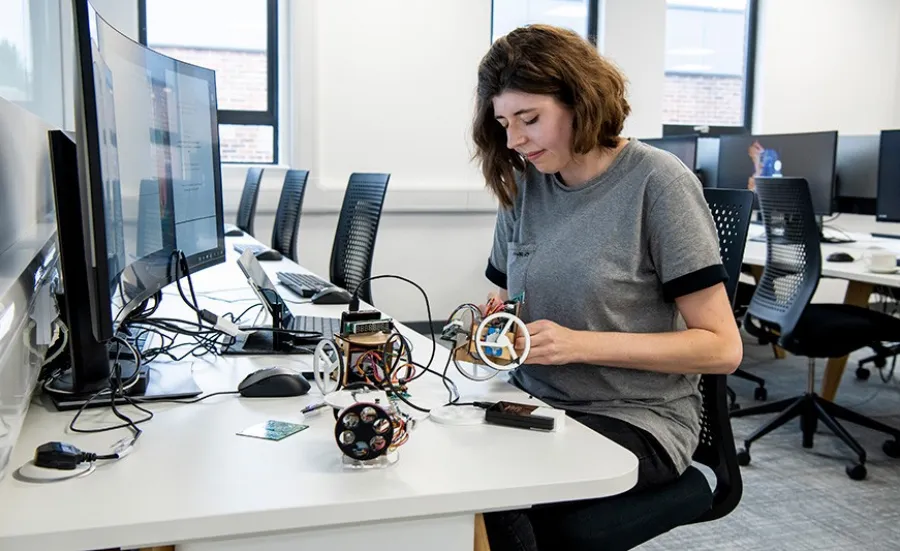Current research degree projects

Explore our current postgraduate research degree and PhD opportunities.

Explore our current postgraduate research degree and PhD opportunities.

This project aims to develop cutting-edge on-device continual learning for resource-constrained robots. It tackles the stability-plasticity dilemma, enabling robots to learn multiple tasks efficiently while retaining prior knowledge.
This PhD project will research how advanced system-technology co-optimisation (STCO) can be harnessed to enhance the efficiency and sustainability of inference, exploring full-stack co-design including the AI model itself.
The aim of this project is to develop cyclic peptide inhibitors targeting a protein–protein interaction that is strongly implicated in the development and progression of tumours. In this project, we aim to advance the development of these inhibitors towards clinical application.
This interdisciplinary project will develop technology integrated and scalable bio-electrochemical processes to convert CO2, N2 and waste organics into high value compounds for fuels, chemicals, food and fertilisers using renewable electricity and microorganisms.
This project focuses on designing and fabricating next-generation photonic fibre technologies using our advanced cleanroom facilities. While traditionally central to global telecommunications, these optical fibre platforms will be repurposed to develop renewable energy solutions, including solar power generation and low-cost energy storage, contributing to net-zero carbon goals.
This project focuses on designing and fabricating novel photonic computing devices using chalcogenide glass materials such as sulfur (S), selenium (Se) and tellurium (Te). These materials enable the creation of micro and nanoscale structures known as meta-optics, that precisely control light over a broad spectral range.
This project focuses on developing chalcogenide glass materials using group VI elements such as sulfur (S), selenium (Se) and tellurium (Te), for advanced optical, photonic, and electronic applications.
This project aims to develop a robot-integrated ultrasonic drilling system for minimally invasive, high-resolution assessment of inhomogeneous damage in degraded concrete. By combining ultrasonic sensing and force measurement during drilling, the system enables real-time subsurface characterization in extreme environments such as underwater or post-fire, supporting safer infrastructure inspection and maintenance.
This project aims to develop AI-driven, metal-based smart antimicrobials targeting gastrointestinal infections and antimicrobial resistance. You will use cutting-edge AI drug design and microfluidic organ-on-a-chip technology for rapid, animal-free drug screening.
This project aims to investigate the effect of varying excitation and loading on the change of electrical impedance of the ultrasonic surgical devices during tissue cutting. It also seeks to implement intelligent and self-adaptive control algorithm. The goal is to achieve a state of autonomously matched impedance between the load and the ultrasonic resonance tracking system. This will help maximise the ultrasonic energy transmission efficiency.